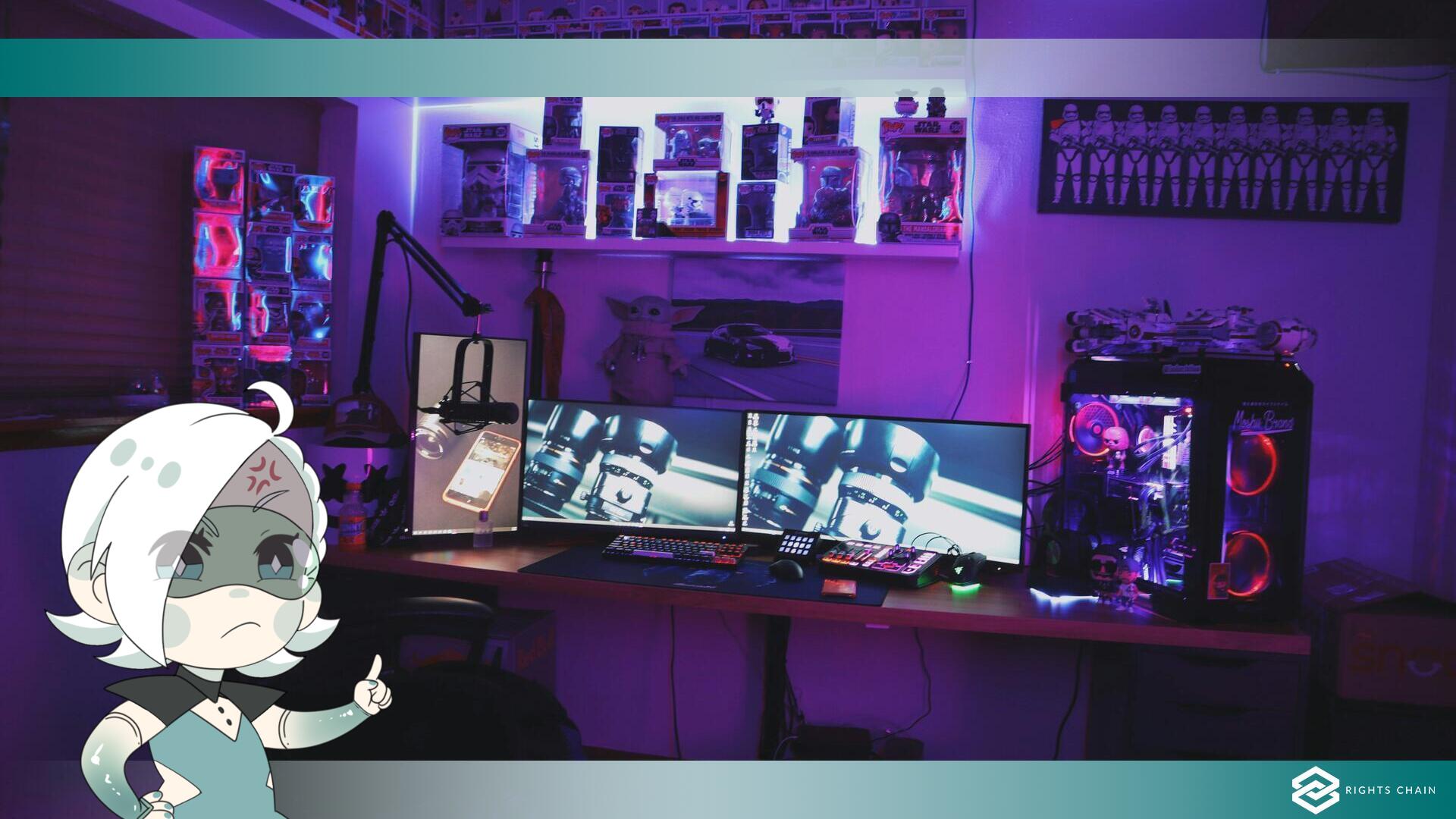The hidden exploitment of V-Tubers.

- 2025-10-12
- Yako
- Opinions
- Kadyn Pierce | Unsplash
A V-Tuber, or “Virtual Youtuber,” is a streamer who produces audiovisual content of any kind (gameplay, music covers, just chatting) using an animated avatar, usually reminiscent of Japanese animation style. Despite the reference to YouTube in the name, these creators can be active on any livestreaming platform, such as Twitch and Bilibili. This figure is still little known in the average European digital landscape, but the practice seems to be gaining ground, especially in the arts sector, which is why today we are telling you about recent developments in this area.
The practice of “V-Tubing” officially began in 2016 with the debut of Kizuna AI, a Japanese V-Tuber who quickly became a phenomenon in the industry. Between 2016 and 2021, she became the virtual YouTuber with the most subscribers on the entire platform, surpassing 4 million. Her fame quickly caught the attention of a large part of the online entertainment industry, which, following the trend, decided to set up agencies dedicated to scouting and managing all those content creators eager to try their hand at this art form. Hololive, V-Shojo, and Nijisanji are just some of the most famous names in the industry, protagonists of innovations and new trends, but also of scandals and rather unpleasant controversies.
Being part of an agency is not a mandatory requirement to become a v-tuber, however, according to the presentations of most companies, the benefits offered could be worth it. Having an institution that manages creators often translates into greater publicity, thanks to frequent collaborations between v-tubers organized by the agency itself, studios in which to record, and, presumably, support. Nevertheless, even today in 2025, there remains a certain secrecy regarding the management offered by companies; the percentage of earnings they retain from superchat messages (a YouTube monetization system) is not disclosed anywhere, nor is their responsibility towards the virtual YouTubers they hire.
Over the last few years, with the rise of v-tubing, these agencies have often been in the news for a variety of reasons. Generally, companies should play a ‘protective’ role for the talent they hire: providing them with opportunities and material to work with, while protecting them from the dangers of the internet, which are usually psychological in nature. When creating online content in front of thousands of people, it is sadly inevitable to become the target of bullies masked as trolls, hidden behind a screen. Although it may be easy to turn the other cheek, being constantly subjected to insults, threats, and the like can cause serious psychological problems, especially in individuals who may be more fragile for one reason or another. V-Tubing is often practiced by people who, for health reasons, may find it difficult to be physically present at every live stream. This translates into a deeper understanding of the condition of many of these streamers who, unfortunately, are increasingly moving away from v-tubing due to constant bullying.
As mentioned above, one would expect a certain level of protection from agencies specializing in the management of these talents. However, the most famous news stories in recent years seem to have highlighted a shameful lack of respect towards their own V-Tubers. In 2023, the company NIJISANJI found itself in the spotlight following the termination of its contract with V-Tuber Selen Tatsuki. In the industry, the preferred method is to use a process called ‘graduation’, whereby the retirement of a talent from the scene is announced and a celebration is held for the occasion. In the case mentioned here, however, the agency terminated the contract without much ado, citing “repeated contract violations and misleading statements on social media platforms.” According to the timeline of events, the whole affair occurred because of a cover published by the talent in question, which was subsequently removed by the company.
Following this episode, Selen disappeared from social media for just over a month, saying she was in the hospital. Fans quickly discovered that this information had been communicated by the company, which returned to the spotlight after a month to announce the termination of its contract with the VTuber. Once free from the contract, the artist, now under the name Dokibird, recounted her experience, explaining that she had been hospitalized following a suicide attempt caused by an accumulation of bullying and several months in a toxic environment. She had asked to end her collaboration with NIJISANJI on good terms, but the agency did not listen to her.
Unfortunately, the situation described here is just one of countless similar cases that have been revealed in recent years, shedding more and more light on the exploitation perpetrated by the agencies behind these creators, who are often simply young people passionate about their hobby and hoping to share that passion with an audience. Many V-Tubers also donate part of the compensation and donations they receive through their streams to charities, often involved in the medical or psychological field. As mentioned above, some of the major creators in this industry suffer from conditions that could affect their ability to pursue different professions, which is why they often devote their efforts to researching and supporting these charities.
Despite this honorable intention, some agencies may not honor their part of the agreement, as in the recent case of the company V-Shojo. The latter is yet another talent agency specializing in V-tubers, founded in 2020 and located in California. In July 2025, Ironmouse, one of the most famous talents represented by the company in question, announced her retirement in a public statement, accusing V-Shojo of failing to pay her the residuals from streaming, including over $500,000 in revenue collected and allocated to the Immune Deficiency Foundation, withholding these sums for more than a year. Ironmouse's announcement caused a sort of “exodus of talents” who, like her, found themselves without proper compensation for their work. Following the retirement of one V-tuber after another, the company imploded and several controversies came to light, further highlighting the toxicity and failures of V-Shojo.
What is the result of these ongoing controversies? Several creators, artists, and fans in the industry have completely distanced themselves from the companies in question. Those who could became independent creators, while others removed themselves from the environment. Mental and physical health are worth more than any company that boasts of being a “supporter of talent.”
We thank you for your attention and hope that today's article has shed light on an unfortunately increasingly widespread problem. Support your favorite creators, and if something seems suspicious, speak up.
Yako.
